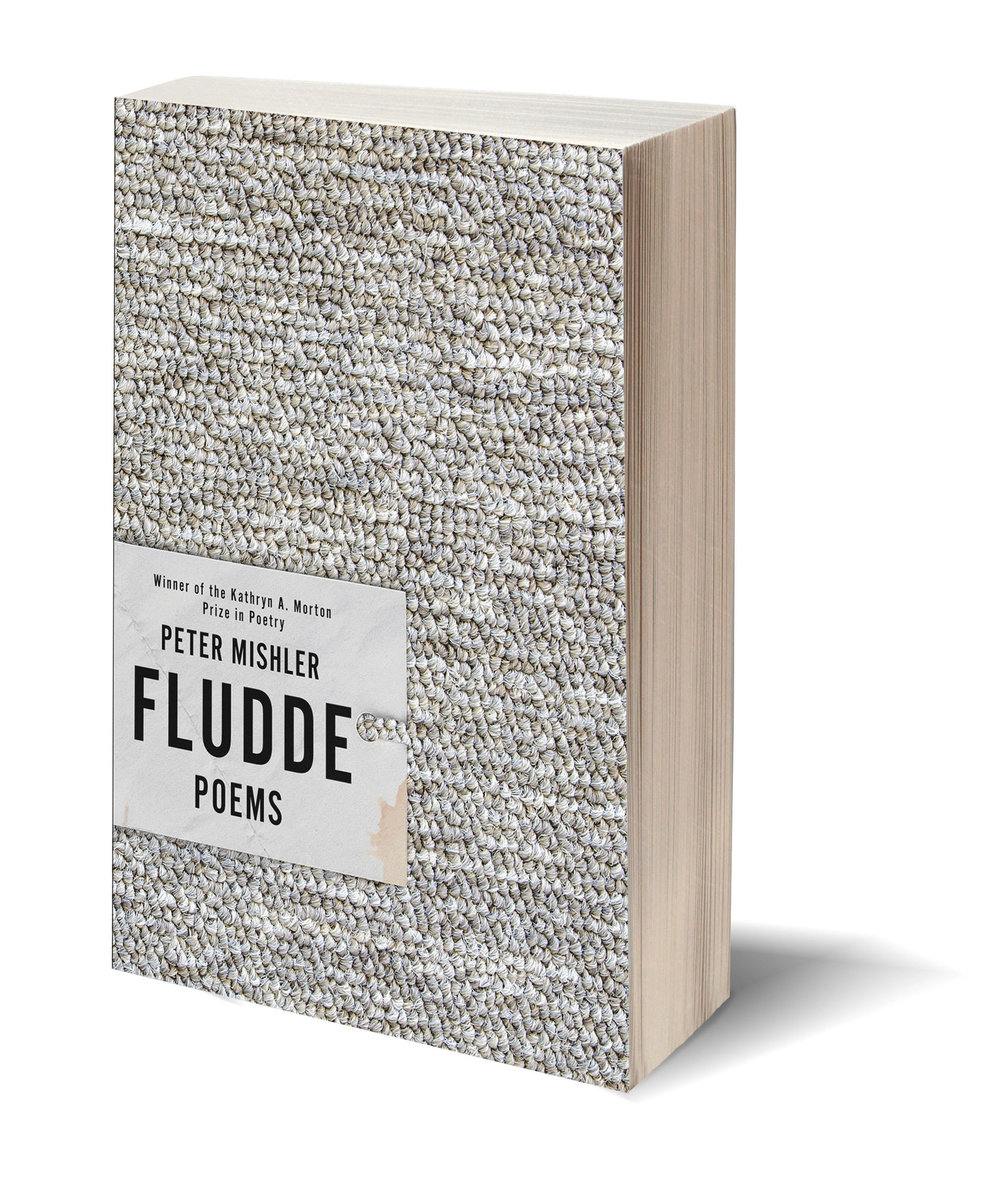FluddeBy Peter Mishler
Sarabande |
 |
|---|
Reviewed by Claudia F. Saleeby Savage
Before becoming a parent, my reading of Peter Mishler's debut poetry collection Fludde (named after twentieth-century British composer Benjamin Britten's short opera about the biblical Noah's flood, in which children are cast as the ark's animals) would have been different. But now, as the mother of a six-year-old, I can't help but see my daughter's growing up and my witnessing of her life in every poem. Fludde performs the same magic as Peter Pan, working as a kind of cautionary tale against this growth (in "Periphery"): "once two friends / stood on opposite banks / of a stream. / Then they were men / and a river, / and then two ghosts." But the collection also shows how we can maintain our childlike marveling even as we age. As Mishler writes in "Haruspex":
Back in the office,
my Xeroxes spilled
from a seam of light.
They handed me
a memory of warmth
from distant fires
An easy assessment of Mishler's work might say, "just believe in magic, anything can be magic." But an assessment like that would dismiss the dark overtones of life and Mishler's recognition of this. In these poems he's not searching for security, or even redemption, as much as he is wondering about the nature of wonder itself. As he writes in "Little Tom Dacre In Heaven":
I can touch my heart
to a knotted tree
and its murmuring
can be heard in the leaves
of an office plant
misted down on earth
In this way, he satisfies what fellow poet Dan Beachy-Quick once said: "it's easy to forget that gentleness is its own form of brilliance." In a world that is constantly shouting, Mishler's poems ask you to revel in what whispers, to take a moment, as he does in "Family Farm," to notice a child trying to make themselves heard while maintaining their fantasies:
I am unfeasible now
in my protective suit
and mask. Tapes
of my flushed speech
spool away from me
into the auburn,
distancing fields.
In an interview with Largehearted Boy, Mishler said, "I performed [as an owl] in Noye's Fludde at my parent's church as a child. The animals were costumed and made to wait in the narthex of the church . . . and the singing of an opera in Middle English left me impatient and imaginative . . . And because I didn't know the Flood story very well—only the boat, the animals, and the rainbow—what I saw was all the stranger."
Fludde's vision, though, is not an idealized version of childhood. If you've ever spent any amount of time with a child, you can witness the ways in which what we fetishize (the perfect round cheeks and placid bow-mouth of an infant sleeping) quickly morphs into utter misery when the same child wakes with a full diaper. Mishler manages to express this in almost every poem, often within one line, as he does in "Tenor":
In the dark of your mouth,
I know you are saving
an orb of your human spit.
Ick. No wonder it is so hard for me to find a babysitter. Then, again, Fludde reminds us why we still venerate childhood. Children, like poets, assign importance to everything—from the smallest, seemingly insignificant rock, to a snowflake or a small piece of paper folded into a special shape, as in "Refrain":
When you are given
a piece of black paper in school
and taught to make a cube,
you carry it home in your hand,
and though it comes home
damaged under the maples . . .
Call it a cage
for the evening,
a cage for the pixelated dark
in which move the night's
infinite animals
With each poem, then, Mishler asks, "How is innocence possible? How does a person achieve surprise?" Mishler achieves that tension, that questioning, through both narrative and form. As a poem like "Landscape" demonstrates, every line break is more than a breath, it is an opportunity to jump off a cliff into an unknown universe:
Beside the harbor,
beside the sea,
beside its snow
that dissolves
when it falls
onto the surface
of its sea,
you can hear
the municipal waste
as it gathers
in the woods
And it is that tension, that surprise, that makes raising a child even more interesting than being one. At a time when it feels like you can answer any question about child-rearing you want with a click, Mishler's Fludde reminds us that the best answers, those of the unspoken imagination, are never searchable. It also reminds us that poetry, when done with a deft eye and sure pen, slows down our inner swirling long enough to let that clear light emerge.
"It is noon, and half of my life / is over," Mishler writes in "Geryon." So, we must cherish, wake up, and hold fast to our child's small hand, before this dream ends.
